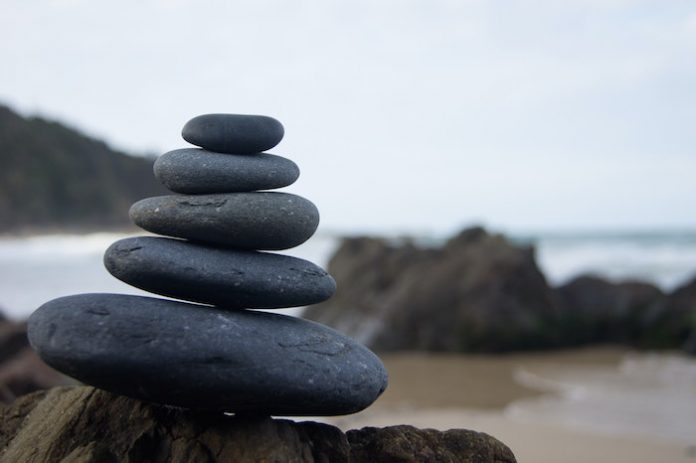Millions of people are currently working from home thanks to the measures laid out by governments across the world, and this new arrangement is unusual for many. What impact can working from home have, especially for those not accustomed to it, and how can this affect people’s work-life balance?
A new study has explored the state of work-life balance in the US, to understand what varying attitudes there are toward different lifestyles, and discover what hours most Americans currently give to their jobs versus how much sleep and leisure time they get.
The results of the survey reveal some interesting figures, including that 84% of respondents would sacrifice time with their family, leisure time, sleep and even their health for their work, highlighting the huge commitment jobs are for most Americans. It also found that 89% of respondents had experienced symptoms of workaholism, whether that be loss of sleep over work stress, a feeling of guilt/anxiety when not working, or finding it difficult to disengage from work when at home.
Canva, the design tool that commissioned this survey, spoke to psychologists, professors and even self-described work fanatics about their experiences with workaholism and overwork in order to gain a deeper understanding of the impacts working has on a person. This also brought to light where the future of work lies.
Andrew Bridgewater, a chartered psychologist and author of books on how to deal with stress and enjoy a healthy work-life balance, has firsthand experience of what overworking can do to a person. He said:
“We need to feel we can give work our full energy, enthusiasm and passion, and out of balance that suffers. I burnt out in 2006 and ended up in a psychiatric hospital with psychotic depression with severe burnout, which shows what does happen when your mind doesn’t get a chance to relax at all. I was thinking negatively nonstop, 24 hours a day, 7 days a week.”
“We need to be aware of this stuff, but it is different for everybody, as some people thrive on this level of work and the pressure that comes with it.”
“I think to be able to feel you can handle that pressure is the difference between being at the risk of the stress curve.”
Indeed, as Bridgewater says, everyone’s experience with work is completely different. Some of the people Canva spoke to work from home in their own self-made businesses, which may contribute to this blurring of the lines between work and free time. However, for these people, their work is a large and fulfilling part of their lives. This is the case for Lydia McCarthy-Keen, who owns an ethical and lab-grown engagement ring company.
She doesn’t see her ‘workaholism’ as a negative thing: “For me, and for us as an ethical and lab-grown engagement ring company, I’m motivated to change the way the world sources diamonds. That’s a massive task, because big players don’t want change. It’s more of a calling than a job. I’d say ending blood diamonds is my religion.”
“We use our lab-grown diamond engagement ring sales to support various projects which provide amputees with limbs and are actively working with companies that are making prosthetics affordable in developing nations.”
“This isn’t work to me. And the other plus is that my clients send me sweet pictures of how they proposed and it’s so joyous! Who can consider that work?”
Professor Yehuda Baruch, who authored a paper on the positive aspects and impacts of workaholism, compared it to being a chocaholic, stating that for many, work can induce energy, motivation and real enjoyment which they can benefit from. He said some even consider work a sanctuary away from other troubles they’d rather not think of, concluding that: “Like many other things there is a balance in life. If you have too little stress, it can become boring. No stress at all is one extreme and too much stress is another extreme.”
He added, “Different people find their balance in different ways, so this doesn’t have to be 8 hours of sleep, 8 hours of work and 8 hours of leisure for everybody, as for some people their balance is the result of more work and less sleep or leisure.”
It is true that 8 hours of sleep, 8 hours of work and 8 hours of leisure might not work for everyone? Even though that is generally considered the healthy outline for daily life, the 996 schedule has been experimented with in some areas of the world. This is working 9am-9pm, 6 days a week, and has been criticized for being too extreme and depriving people of a healthy work-life balance.
In Canva’s study of US respondents, 17% said they would be in favor of these 996 routines, which would suggest that a more balanced work-life future may not be the top priority for at least a certain percentage of the population. However, the study also found that 55% of US workers would support a 4-day workweek, giving them more time to spend with their family and friends and away from the desk.
Whatever your preferences toward work are, it is understandable and realistic that every person will be different, but it is certainly important to understand that your health is the most important thing. Lee Hughes, author of Get a Life: Creating a Successful Work-Life Balance, agreed: “Stress can creep up on us through the multiplier effect of one pressure after another. If we don’t engage the release valve, the pressure cooker lid blows off.”
“We will have priorities based on our stage in life, family and relationships, level of affluence and, ultimately, what gives us purpose and meaning.”
“In our twenties, we might focus more on career and getting onto the ladder. When we’re on it, we may attend more to personal relationship and family and so on. The most important factor is to weigh up what the priorities are, then choose how we give sufficient attention to what’s most important.”
Find a Home-Based Business to Start-Up >>> Hundreds of Business Listings.

















































